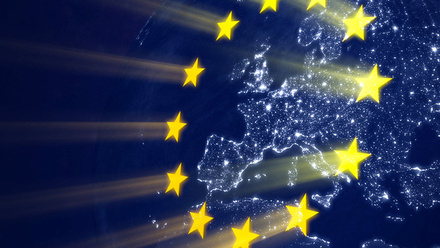techUK International Policy and Trade Programme activities
techUK supports members with their international trade plans and aspirations. We help members to understand market opportunities, tackle market access barriers, and build partnerships in their target market. Visit the programme page here.
International Trade Conference 2026 | Time to Trade: Taking UK Tech to the World in 2026
On 3 March, we will bring together tech experts, policy makers, academics and thought leaders at techUK’s flagship International Policy & Trade Conference
Upcoming events
International Trade Conference 2026 | Time to Trade: Taking UK Tech to the World in 2026
Central London ConferenceThe Hidden Costs of Getting U.S. Expansion Wrong
London | Birmingham | ManchesterLatest news and insights
Learn more and get involved
International Policy and Trade updates
Sign-up to get the latest updates and opportunities from our International Policy and Trade programme.
Here are the five reasons to join the International Policy and Trade Programme
Join techUK groups
techUK members can get involved in our work by joining our groups, and stay up to date with the latest meetings and opportunities in the programme.
Become a techUK member
Our members develop strong networks, build meaningful partnerships and grow their businesses as we all work together to create a thriving environment where industry, government and stakeholders come together to realise the positive outcomes tech can deliver.
Meet the team

Sabina Ciofu
International Policy and Strategy Lead, techUK

Sabina Ciofu
International Policy and Strategy Lead, techUK
Sabina Ciofu is International Policy and Strategy Lead at techUK, where she heads the International Policy and Trade Programme. Based in Brussels, she shapes global tech policy, digital trade, and regulatory cooperation across the EU, US, Canada, Asia-Pacific, and the Gulf region. She drives strategy, advocacy, and market opportunities for UK tech companies worldwide, ensuring their voice is heard in international policy debates.
With nearly a decade of previous experience as a Policy Advisor in the European Parliament, Sabina brings deep expertise in tech regulation, trade policy, and EU–US relations. Her work focuses on navigating and influencing the global digital economy to deliver real impact for members.
A passionate community-builder, Sabina co-founded Young Professionals in Digital Policy (800+ members) and now runs Old Professionals in Digital Policy (more experience, better wine, earlier nights). She is also the founder of the Gentlewomen’s Club, a network of 500+ women supporting each other with kindness.
She holds advisory roles with the UCL European Institute, Café Transatlantique (a network of women in transatlantic tech policy), and The Nine, Brussels’ first members-only club for women.
Recognised by ComputerWeekly as one of the most influential women in UK tech, Sabina is also a sought-after public speaker on tech, trade and diversity.
Sabina holds an MA in War Studies from King’s College London and a BA in Classics from the University of Cambridge.
She is a frequent traveler and a marathon runner.
- Email:
- [email protected]
- Phone:
- +32 473 323 280
- Website:
- www.techuk.org

Daniel Clarke
Senior Policy Manager for International Policy and Trade, techUK

Daniel Clarke
Senior Policy Manager for International Policy and Trade, techUK
Dan joined techUK as a Policy Manager for International Policy and Trade in March 2023.
Before techUK, Dan worked for data and consulting company GlobalData as an analyst of tech and geopolitics. He has also worked in public affairs, political polling, and has written freelance for the New Statesman and Investment Monitor.
Dan has a degree in MSc International Public Policy from University College London, and a BA Geography degree from the University of Sussex.
Outside of work, Dan is a big fan of football, cooking, going to see live music, and reading about international affairs.
- Email:
- [email protected]

Theophile Maiziere
Policy Manager - EU, techUK

Theophile Maiziere
Policy Manager - EU, techUK
Theo joined techUK in 2024 as EU Policy Manager. Based in Brussels, he works on our EU policy and engagement.
Theo is an experienced policy adviser who has helped connect EU and non-EU decision makers.
Prior to techUK, Theo worked at the EU delegation to Australia, the Israeli trade mission to the EU, and the City of London Corporation’s Brussels office. In his role, Theo ensures that techUK members are well-informed about EU policy, its origins, and its implications, while also facilitating valuable input to Brussels-based decision-makers.
Theo holds and LLM in International and European law, and an MA in European Studies, both from the University of Amsterdam.
- Email:
- [email protected]
- Website:
- www.techuk.org
- LinkedIn:
- linkedin.com/in/théophile-maiziere-a32772111
Tess Newton
Team Assistant, Policy and Public Affairs, techUK
Tess Newton
Team Assistant, Policy and Public Affairs, techUK
Tess joined techUK as an Policy and Public Affairs Team Assistant in November of 2024. In this role, she supports areas such as administration, member communications and media content.
Before joining the Team, she gained experience working as an Intern in both campaign support for MPs and Councilors during the 2024 Local and General Election, and working for the Casimir Pulaski Foundation on defence and international secuirty. She has worked for multiple charities, on issues such as the climate crisis, educational inequality and Violence Against Women and Girls (VAWG). In 2023, Tess obtained her Bachelors of Arts in Politics and International Relations from the University of Nottingham.
- Email:
- [email protected]
- LinkedIn:
- https://www.linkedin.com/in/tess-newton-8ab444239/









